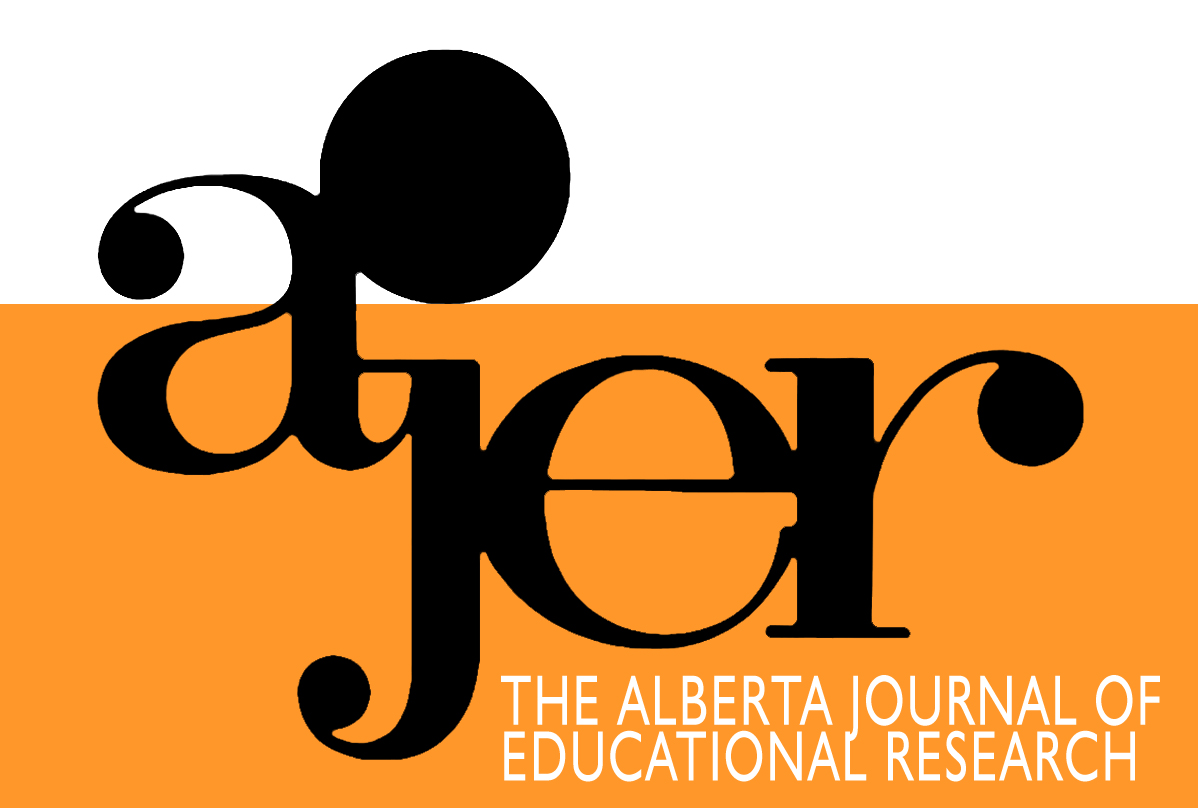Changing the Story: Indigenous Youth Belong in Post-Secondary Education
DOI:
https://doi.org/10.55016/ojs/ajer.v70i1.77459Abstract
This article describes a collaboration between an urban school board and a faculty of education aimed at supporting Indigenous youth transitions to post-secondary education. Drawing upon strengths-based approaches including wise practices, we offer a model for how postsecondary transition events can illuminate pathways for young people to see that they belong in higher education. We highlight the importance of connecting with Elders, hearing from successful Indigenous speakers, and seeing campus. The theme of our event reiterates to Indigenous youth that they have a story and that they can take the next steps to a new beginning in post-secondary education.
Keywords: Indigenous education, Indigenous youth, post-secondary education, school transitions, virtual events
Cet article décrit une collaboration entre une autorité scolaire en milieu urbain et une faculté d'éducation visant à soutenir la transition des jeunes autochtones vers l'enseignement postsecondaire. Puisant dans des approches fondées sur les forces, y compris les pratiques sages, nous offrons un modèle de la façon dont les événements liés à la transition vers l'enseignement postsecondaire peuvent éclairer les passerelles permettant aux jeunes de voir qu'ils ont leur place dans l'enseignement supérieur. Nous soulignons l'importance d'établir des liens avec les aînés, d'écouter des conférenciers autochtones qui ont réussi et de visiter le campus. Le thème de notre événement rappelle aux jeunes autochtones qu'ils ont une histoire et qu'ils peuvent franchir les prochaines étapes vers un nouveau départ dans l'enseignement postsecondaire.
Mots-clés : Éducation autochtone, jeunesse autochtone, éducation postsecondaire, transitions scolaires, événements virtuels
Downloads
Published
Issue
Section
License
UNIVERSITY OF ALBERTA COPYRIGHT LICENSE AND PUBLICATION AGREEMENT
If accepted, authors will be asked to sign a copyright agreement with the following points:
A. Where there is any inconsistency between this Copyright License and Publication Agreement and any other document or agreement in relation to the same subject matter, the terms of this Agreement shall govern.
B. This document sets out the rights you are granting in relation to publication of your article, book review, or research note entitled (the “Article”) through inclusion in the academic journal titled Alberta Journal of Educational Research (the “Journal”) published through the Faculty of Education, representing the Governors of the University of Alberta (the “Journal Editor”).
C. There will be no payment to you for this publication and grant of rights. In consideration of the agreement to publish the Article in the Journal:
1. You are warranting that:
- the content of the Article is your original work, and its content does not contain any material infringing the copyright of others; or, where the Article is not entirely your original work, you have obtained all necessary permissions in writing to grant the rights you are giving in this agreement;
- the content of the Article does not contain any material that is defamatory of, or violates the privacy rights of, or discloses the confidential information of, any other person;
- the Article has not been published elsewhere in whole or in part, and you will not allow publication of the Article elsewhere without the consent of the Journal Editor;
- the names of all co-authors and contributors to the Article are:
2. You agree to license the copyright in the Article to the Journal Editor, on a worldwide, perpetual, royalty free basis; and to the extent required by the terms of this agreement. You shall retain the right at all times to be acknowledged as the/an author of the Article.
3. You further agree that the Journal Editor has the entitlement to deal with the Article as the Journal Editor sees fit, and including in the following manner;
- The right to print, publish, market, communicate and distribute the Article and the Journal, in this and any subsequent editions, in all media (including electronic media), in all languages, and in all territories, ing the full term of copyright, and including any form of the Article separated from the Journal, such as in a database, abstract, offprint, translation or otherwise, and to authorize third parties to do so;
- The right to register copyright of the Journal;
- The right to edit the Article, to conform to editorial policy as the Journal Editor sees fit.
4. If any co-author or contributor to the Article does not sign this agreement, the Journal Editor reserves the right to refuse to publish the Article.



